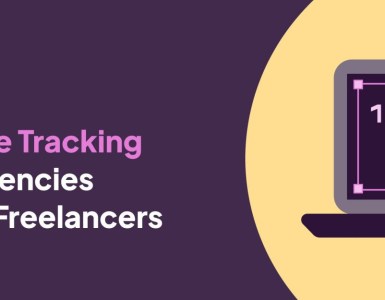Need a logo? Or graphics for a flier?
For small businesses and start-ups especially, creative freelancers can be the perfect solution for your on-demand creative needs. But the tax implications be really really confusing.
It’s important to classify your workers properly to avoid the wrath of the IRS! As for the work itself, you need to make sure that when it’s finished it belongs to you!
1. Freelancer vs employee
You might think that just because you’re hiring someone for the short-term, they automatically count as a freelancer.
However, what ultimately matters is how much control you have over their work. So if you’re asking a graphic designer to work in your office, during office hours – even if it’s only for a few weeks – you probably need to add them to your staff list.
But if they’re working elsewhere, setting their own hours (for example) and using their own equipment, you’re safe to count them as a freelancer. Similarly, although it’s okay to set deadlines, don’t set specific working hours.
Pay them through invoices (not monthly or weekly like you might with permanent staff) and pay them by the job. And although it might sound obvious, don’t ask them to work for you and you alone.
2. Work made for you is work made for hire
The last thing you want is to realize you don’t actually have the rights to your shiny new logo!
When you’re hiring, make sure you establish a watertight contract that includes the clause that anything created by the freelancer is “work made for hire“.
This gives you the legal rights to the work so you can use it as intended and means your freelancer can’t disappear into the sunset with it.
3. Some caveats…
These guidelines apply to freelance work in the US.
Often, however, the list of things that define whether a person is a freelancer or an employee is very similar in different places.
- In the UK, for instance, it’s much the same with correct classification equally important. If they’re an employee, they’re entitled to a lot more from you (in terms of worker’s rights) than a freelancer. Like in the US, who has control over the work matters. In addition, the freelancer shouldn’t have to do the work if they don’t want to (and you don’t have to keep giving work). Again, it’s best if you’re flexible and the contract is short. Freelancers also have to sort out their own taxes.
- In the EU, free movement of workers is encouraged, but the laws applying to freelancers differ from country to country, e.g in France a worker needs permission to be self-employed.
- Canada uses a four point system – does the worker have control? Do they use their own materials? Are they in control over their profits? And are they integrated into the business environment (they shouldn’t be)?
Want to find out more?
This article goes through different regions more thoroughly.
For those in the UK: When is a freelancer really an employee?
And for the US.
Ready to hire? Our marketplace of over 410,000 freelancers has the skills and expertise needed to skyrocket your business to the next level. From marketers to designers, copywriters to SEO experts – browse the talented bunch here!



